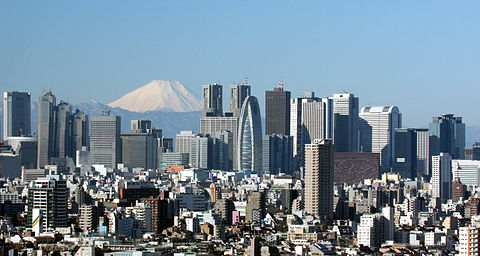Japanese Public Pensions as “The Great Trigger”
28th October 2015
Promotion and Mutual Aid Corporation for Private Schools of Japan, which has the same model portfolio, is expected to join the other pension whales in the near future. While modest estimates of allocation to global real estate are around 1%, other estimates say up to 2% or more can be expected. This will be over 3.4 trillion JPY (approx. 28 billion USD) to go into real estate if one were to include Promotion and Mutual Aid Corporation for Private Schools of Japan. However, this figure will have a far greater impact on real estate, as it will act as “The Great Trigger” for other institutional investors such as insurance companies, corporate pensions, major banks, regional banks and credit unions. The characteristics of real estate is generally well matched for insurance companies who are looking for long term investments, but real estate has been a hurdle for Japanese investors, regardless of yields, long duration, inflation hedging abilities, and capital gain, because of the negative impression left on Japanese investor from the bubble crash in 1990’s.
Taking a closer look at life insurance companies, which form one of the most noteworthy groups of investors in Japan; even though they hold a total AUM of 341 trillion JPY (2.84 trillion USD) as of 2015 July, only 1.8% is allocated to (direct) real estate according to the Life Insurance Association of Japan. However, in 1989 the peak of Japan’s bubble economy, this number was estimated to be 6%. After the bubble burst, Japanese insurance companies suffered gigantic losses from real estate, but losses overseas proved to be the most psychologically devastating. Currently, out of the major Japanese insurance companies, it is estimated that only a couple are investing to overseas real estate now; a stark contrast to the bubble period. The memories of the post-bubble real estate losses are still vivid in investors` mind and act as a psychological barrier for not only managers, but also shareholders. This is arguably one of the biggest challenges to overcome for the real estate industry.
However, Japanese life insurance companies need to generate 2% return for its assumed interest rate. This is becoming increasingly difficult as the interest rate of 10 year Japanese government bonds is at a historic low of 0.3%. Insurance companies are now facing needs to diversify investment asset classes to gain higher returns. After GPIF’s first investment in the asset in 2014, infrastructure garnered much attention from Japanese insurance companies for its typical characteristics of long term, income growth, and inflation hedging abilities. Many major life insurance companies decided to start investment in infrastructure in 2014 and 2015.
Large pension funds such as GPIF play an important role looking after money for the public and therefore, can be viewed as having great responsibility. As such, major public pensions` decisions are considered to represent public opinion. As a result, investments into real estate from them have overwhelming influence on other investors and can change the general consensus on real estate to be positive, as demonstrated by the infrastructure case above.
If Japanese life insurance companies reallocate only 1% to global real estate, 3.4 trillion JPY will enter into the global real estate market. This is equivalent to the estimated investment size of the big four Japanese public pensions. This figure only looks at life insurance companies, other large investors group are expected to follow such as other insurance companies, major banks, regional banks, credit unions.
Looking at current infrastructure investments and considering the lack of management platform, one can predict that Japanese insurance companies will start investing in overseas real estate through funds first, and then move onto direct investments.
With Japan`s largest pensions leading the way Yukihiko Ito, managing director of Asterisk Placement Agency, predicts the next two years to be an exciting transition period for real estate capital market in Japan, not just in terms of the return of life insurance companies, but also new institutional investors entering the market.
For further details about this and more about our services please contact: Yukihiko Ito (yuki@asteriskrealty.jp) / Kat Hoang (k.hoang@asteriskrealty.jp)
About Asterisk Realty & Placement Agency
Asterisk is a private fund placement agency for global alternative in Japan. Through our unique and extensive network of Japanese investors, we support global fund managers in accessing Japanese and Asian institutional investors (pensions, financial institutions, real estate developers, other business companies, etc.).
We provide access and strategies for overseas fund managers to bridge the gap between them and Japanese investors.
Asterisk Inc.,
3-29 Kioicho Gluckheim Suite 2003 , Chiyoda-ku , Tokyo , Japan
Telephone: 03-3263-9909
Email : info@japanplacementagent.com
Website : https://japanplacementagent.com/en/
Type II Financial Instruments Business License The Kanto finance Bureau No.2577
Real Estate License / Governor of Tokyo (2) No.89094

